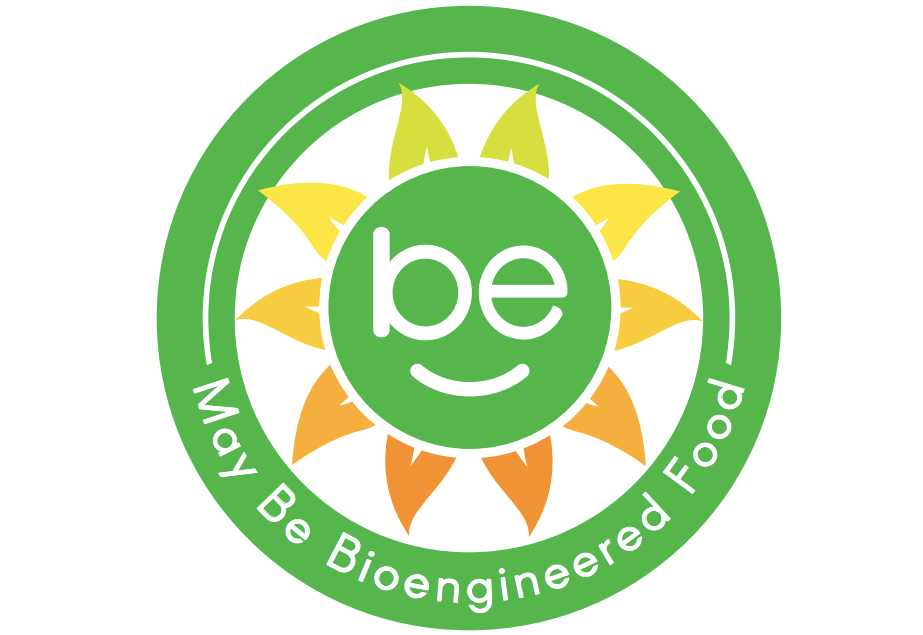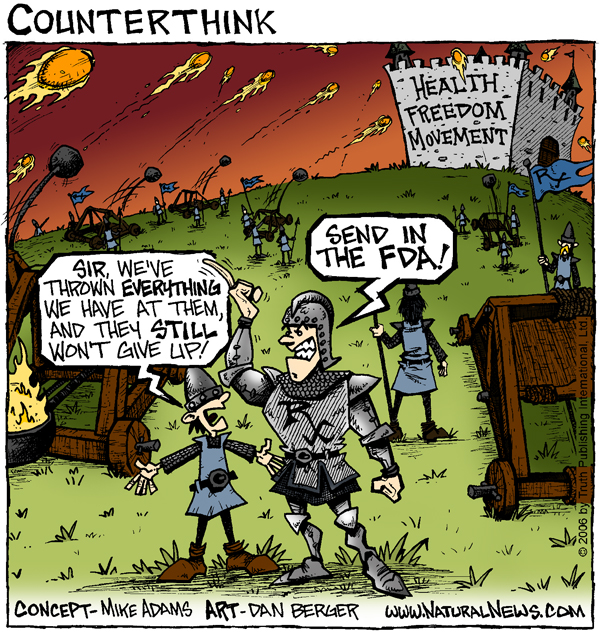Become a Patron!
You are using an out of date browser. It may not display this or other websites correctly.
You should upgrade or use an alternative browser.
You should upgrade or use an alternative browser.
Jimi's Daily Health Articles
- Thread starter Jimi
- Start date
The Five Best Ways to Beat a Cold
https://www.greenmedinfo.health/blo...uY29tIiwgImtsX2NvbXBhbnlfaWQiOiAiSzJ2WEF5In0=
https://www.greenmedinfo.health/blo...uY29tIiwgImtsX2NvbXBhbnlfaWQiOiAiSzJ2WEF5In0=
Cheap Gout Drug May Save Heart Attack Patients
https://www.newsmax.com/health/heal...b=DM68963_11182019&s=acs&dkt_nbr=0101242bo1rv
https://www.newsmax.com/health/heal...b=DM68963_11182019&s=acs&dkt_nbr=0101242bo1rv
Yeah, but they sure are tasty little chunks, most of mine was too small to really notice
I love the syrup though. Maybe I’ll splurge for the holidays. If you can make some yourself, it’s amazing!
Maybe I’ll try the date sugar after New Years.

Bile Flow: Top 15 Herbs to Support Liver & Gallbladder
https://drjockers.com/bile-flow-top-15-herbs-to-support-liver-gallbladder/
https://drjockers.com/bile-flow-top-15-herbs-to-support-liver-gallbladder/
How to Lower Your Sodium Intake
https://nutritionfacts.org/2019/11/...-25718665&mc_cid=3a6ed3fc2a&mc_eid=2fc2f620bb
https://nutritionfacts.org/2019/11/...-25718665&mc_cid=3a6ed3fc2a&mc_eid=2fc2f620bb
Common antibiotic could lead to fatal heart issues
https://www.naturalhealth365.com/antibiotic-heart-risks-3192.html
https://www.naturalhealth365.com/antibiotic-heart-risks-3192.html
How SIBO & Fatty Liver Are Connected (And What To Do About It)
https://sibosos.com/how-sibo-fatty-...implero_object_id=su_YLxtsXshqLyDgCgcBD1bLmfo
https://sibosos.com/how-sibo-fatty-...implero_object_id=su_YLxtsXshqLyDgCgcBD1bLmfo
How To Stop 5G Where You Live
https://www.electricsense.com/stop-5g-where-you-live/
https://www.electricsense.com/stop-5g-where-you-live/
Can Labels Be Trusted?
Back in 2012 in California, I committed myself to a campaign to pass a labeling law which would let shoppers know if their food contained something not a lot of Americans had yet heard of – Genetically Modified Organisms (GMOs).
This is really where my food activism career began, and what led me to first making music around these issues, and eventually connecting with Ryan Wirick to create The Need To GROW.
Long story short, our efforts were thwarted by big food and chemical companies who spent 10s of millions to make sure the public voted against their best interests.
Why didn't they want Americans to know if their food was GMO?
Though we didn't pass the law in 2012... we did start a movement!
Over the years, people began to wonder why most developed countries in the world had GMO labeing, yet the US and Canada remained in the dark.
Finally, just last year in 2018, the US announced it was going to label GMOs!
Seems like a victory for food transparency, right?...Not quite.
Unfortunately, in the ongoing effort to mislead consumers, rather than a label for "GMO", as the entire health conscious public had come to know these foods, they decided to use the description "BE", for Bio-Engineered.
Make no mistake, almost no one refers to these foods as 'BE'. Doesn't it defeat the purpose of a label if you don't know what it means?!
Here's a peek at what you might see coming to US shelves in early 2020 as this law takes effect.


Predictably, there are tons of loopholes in the requirements of who needs to label, and brands may even be allowed to label using something called a 'QR code' which requires a smart phone to interpret!
Over 90% of corn, soy, cotton, canola, and sugar beets are now GMO. Since we can't rely on this crooked label, if you want to avoid GMOs, the best way is to avoid any non-organic versions of these aforementioned crops.
Over 75% of processed foods in an average grocery store contain GMOs, so stay vigilant!
Back in 2012 in California, I committed myself to a campaign to pass a labeling law which would let shoppers know if their food contained something not a lot of Americans had yet heard of – Genetically Modified Organisms (GMOs).
This is really where my food activism career began, and what led me to first making music around these issues, and eventually connecting with Ryan Wirick to create The Need To GROW.
Long story short, our efforts were thwarted by big food and chemical companies who spent 10s of millions to make sure the public voted against their best interests.
Why didn't they want Americans to know if their food was GMO?
Though we didn't pass the law in 2012... we did start a movement!
Over the years, people began to wonder why most developed countries in the world had GMO labeing, yet the US and Canada remained in the dark.
Finally, just last year in 2018, the US announced it was going to label GMOs!
Seems like a victory for food transparency, right?...Not quite.
Unfortunately, in the ongoing effort to mislead consumers, rather than a label for "GMO", as the entire health conscious public had come to know these foods, they decided to use the description "BE", for Bio-Engineered.
Make no mistake, almost no one refers to these foods as 'BE'. Doesn't it defeat the purpose of a label if you don't know what it means?!
Here's a peek at what you might see coming to US shelves in early 2020 as this law takes effect.


Predictably, there are tons of loopholes in the requirements of who needs to label, and brands may even be allowed to label using something called a 'QR code' which requires a smart phone to interpret!
Over 90% of corn, soy, cotton, canola, and sugar beets are now GMO. Since we can't rely on this crooked label, if you want to avoid GMOs, the best way is to avoid any non-organic versions of these aforementioned crops.
Over 75% of processed foods in an average grocery store contain GMOs, so stay vigilant!
Big Study Casts Doubt on Need for Many Heart Procedures
https://www.newsmax.com/health/heal...b=DM69367_11192019&s=acs&dkt_nbr=010124ih3oex
https://www.newsmax.com/health/heal...b=DM69367_11192019&s=acs&dkt_nbr=010124ih3oex
Food for Thought

Unsubscribe.
GreenMedInfo 27499 Riverview Center Blvd Suite 434 Bonita Springs, FL 34134

Unsubscribe.
GreenMedInfo 27499 Riverview Center Blvd Suite 434 Bonita Springs, FL 34134
The "One Size Fits All" Global Vaccine Agenda
https://www.greenmedinfo.health/blo...uY29tIiwgImtsX2NvbXBhbnlfaWQiOiAiSzJ2WEF5In0=
https://www.greenmedinfo.health/blo...uY29tIiwgImtsX2NvbXBhbnlfaWQiOiAiSzJ2WEF5In0=
Common antibiotic could lead to fatal heart issues
https://www.naturalhealth365.com/antibiotic-heart-risks-3192.html
https://www.naturalhealth365.com/antibiotic-heart-risks-3192.html
Jeopardy! host Alex Trebek is being killed by chemotherapy… hundreds of thousands DIE in America every year from toxic chemo drugs
https://www.naturalnews.com/2019-11-18-jeopardy-alex-trebek-chemotherapy.html
https://www.naturalnews.com/2019-11-18-jeopardy-alex-trebek-chemotherapy.html
Big Pharma vs. Boeing: Deaths from pharmaceuticals are like a 737 Max crashing and burning EVERY DAY
https://www.naturalnews.com/2019-11-19-big-pharma-boeing-deaths-from-pharmaceuticals-crashing.html
https://www.naturalnews.com/2019-11-19-big-pharma-boeing-deaths-from-pharmaceuticals-crashing.html
5 Foods That Can Cause Cancer
https://www.verywellhealth.com/food...m_source=cn_nl&utm_content=18649991&utm_term=
https://www.verywellhealth.com/food...m_source=cn_nl&utm_content=18649991&utm_term=
Ok...so there is a slight chance you aren't in any stage of autoimmunity....however, there's a good chance that you are.
Remember the email I sent a couple months talking about the spectrum of autoimmunity?
Well, I wanted to talk a little more about that.
So there are actually 3 stages of autoimmunity and they are as follows:
Here are some RED FLAGS that you are likely in stage 2 of autoimmunity:
Remember the email I sent a couple months talking about the spectrum of autoimmunity?
Well, I wanted to talk a little more about that.
So there are actually 3 stages of autoimmunity and they are as follows:
- Stage 1: silent autoimmunity. This is where you have elevated antibodies but no symptoms or loss of tissue. MANY people have this and are unaware of it.
- Stage 2: autoimmune reactivity. This is when you have elevated antibodies with symptoms and no clinically noticeable loss of tissue. This is the stage where you're searching for a reason for your symptoms but allopathic medicine keeps telling you that you are perfectly healthy. However, you know otherwise.
- Stage 3: autoimmune disease. This is full blown diagnosed autoimmune disease. You have elevated antibodies with symptoms and measurable tissue destruction. This is when allopathic medicine finally takes you seriously.
Here are some RED FLAGS that you are likely in stage 2 of autoimmunity:
- Nothing has cured your chief complaint
- Various treatments have helped at various times
- You have multiple adverse reactions to foods, chemicals, etc
- Numerous diagnosis and doctors in medical history
- You have a large file of labs and countless bottles of supplements
- You have been diagnosed with any of the following: hypothyroidism, diabetes, inflammatory bowel disease, psoriasis, b-12 anemia, arthritis, non-viral hepatitis, gluten sensitivity, interstitial cystitis, meniere’s disease, ulcerative colitis, or crohn’s disease
One Article, two posts
This Fruit Packs a Potent Punch
Against Cancer
When I was growing up (back before the Civil War), strawberries were a special treat of early summer. Then it was over for another year.
Nowadays you can get them year-round in supermarkets, although you have to choose carefully, because most of the store-bought ones lack the scrumptious flavor I remember from my childhood.
And you also need to buy organic strawberries, because the conventionally grown ones are among the most chemical-laden of all produce.
But if you can deal with those caveats, strawberries rank as just about the most delicious cancer-fighting food on the planet.
A 17th century English writer said, “Doubtless God could have made a better berry, but doubtless God never did.”
It’s a quote you’ll often hear from strawberry fans like myself.
I once advised a nephew not to marry a young lady who said she didn’t like strawberries. He married her anyway. And they lived happily ever after. Which goes to show you shouldn’t come to me for relationship advice. But I still think I was right, hah!
Besides the fact that strawberry shortcake is just about a sacrament as far as I’m concerned, this luscious, juicy red fruit is rich in vitamin C and a host of other powerful antioxidants and flavonoids. These alone give us many good reasons to eat strawberries every week of the year.
But now there’s a newly discovered substance in strawberries that’s practically a “miracle drug” against cancer. . .
The new molecule is not only jam-packed with anti-cancer properties but is found in strawberries at levels five to ten times higher than any other single food item.
It's called fisetin.
Boosts key antioxidants
The term is overused but “superfood” applies to strawberries in spades.
Three years ago researchers from Spain and Italy writing in the Journal of Agricultural and Food Chemistry summed up the health benefits of strawberries as: antioxidant, antimicrobial, anti-inflammatory, anti-obesity, anti-diabetic, anti-metabolic syndrome, cardiovascular disease-protective, nerve-protective, and anti-cancer.1
These benefits not only come from vitamins and minerals such as vitamins C and K, folate, potassium, manganese, and magnesium, but from high levels of antioxidants such as ellagic acid, and flavonoids like anthocyanin, catechin, quercetin, resveratrol and kaempferol.
Fisetin is another flavonoid, but is much less well known than some of the others. Yet, like Cinderella, it may be the fairest of them all.
To begin with it's a strong scavenger of free radicals. Not only is it an antioxidant in its own right, but it boosts your levels of three other major antioxidants -- glutathione, superoxide dismutase and catalase.
Long-time readers of this newsletter know that these three chemicals are among the most powerful disease and aging fighters known. Your body makes them itself, but you should give it all the help you can, and fisetin does that.
Besides that, fisetin has a special quality. It can keep up our antioxidant defenses by maintaining glutathione levels.2
Glutathione is commonly dubbed 'the master antioxidant' because it is a major protector of cells from oxidative and other forms of toxic stress. Glutathione is also able to recycle other antioxidants like vitamins C and E so they can be used over and over again.
Additional benefits come from glutathione's role in activating the immune response and playing a key part in the body's detoxification systems.
All by itself, glutathione is one of the most important indicators of how long you’re likely to live. Low levels mean poor health, high levels mean good. And fisetin helps build and maintain glutathione levels.
Blocks cancer growth
Another valuable property of fisetin is that it can block NF-κB.3 This is a family of proteins that play critical roles in orchestrating an inflammatory response.
Inflammation is important when it comes to taking on germs, but can have negative consequences because it can promote allergies, autoimmune diseases and cancer. In short, there’s good inflammation and bad inflammation.
In many different types of human tumors, the proinflammatory molecule NF-κB is active, turning on the expression of genes that maintain cell proliferation and that keep cancer cells alive.
Fisetin is also able to block mTOR in many tumors, an important intracellular signaling pathway in the regulation of the cell cycle.
The protein complex mTOR is known as the master growth regulator because it senses when cells need nutrients to grow and divide. When mTOR is triggered, key cell ingredients are copied to make new cells. Unfortunately, cancer cells also need mTOR and use it to ensure limitless cell division and expansion. Fisetin is able to block mTOR in many tumors and also helps remove waste products of overactive mTOR metabolism, a process called autophagy.4
Fisetin has also been shown to induce apoptosis (cancer cell “suicide”) and inhibit angiogenesis (growth of blood supply to the tumor).3
Stops the spread of cancer
To grow and expand, healthy cells need to break down collagen and connective tissues that surround and confine them. To do so they secrete a family of enzymes called metalloproteinases (MMPs).
Cancer hijacks this natural process, producing excessive amounts of MMPs to scythe through tissues, allowing it to invade and spread to other organs. Preventing this uncontrolled breakdown of connective tissues is key to stopping metastasis.
A study by Chinese biologists found that of 17 flavonoids tested, fisetin was the most active agent at reducing MMP-1.5
In another study, MMP inhibitors were screened from extracts of medicinal herbs. Fisetin showed the strongest inhibitory activity.
The Korean researchers wrote, "In addition to inhibition of MMP-14, fisetin inhibits MMP-1, MMP-3, MMP-7, and MMP-9, more efficiently than a naturally occurring MMP inhibitor tetracycline. Therefore, fisetin could be valuable as a chemopreventive agent against cancer and a lead compound for development of therapeutic MMP inhibitors."6
This Fruit Packs a Potent Punch
Against Cancer
When I was growing up (back before the Civil War), strawberries were a special treat of early summer. Then it was over for another year.
Nowadays you can get them year-round in supermarkets, although you have to choose carefully, because most of the store-bought ones lack the scrumptious flavor I remember from my childhood.
And you also need to buy organic strawberries, because the conventionally grown ones are among the most chemical-laden of all produce.
But if you can deal with those caveats, strawberries rank as just about the most delicious cancer-fighting food on the planet.
A 17th century English writer said, “Doubtless God could have made a better berry, but doubtless God never did.”
It’s a quote you’ll often hear from strawberry fans like myself.
I once advised a nephew not to marry a young lady who said she didn’t like strawberries. He married her anyway. And they lived happily ever after. Which goes to show you shouldn’t come to me for relationship advice. But I still think I was right, hah!
Besides the fact that strawberry shortcake is just about a sacrament as far as I’m concerned, this luscious, juicy red fruit is rich in vitamin C and a host of other powerful antioxidants and flavonoids. These alone give us many good reasons to eat strawberries every week of the year.
But now there’s a newly discovered substance in strawberries that’s practically a “miracle drug” against cancer. . .
The new molecule is not only jam-packed with anti-cancer properties but is found in strawberries at levels five to ten times higher than any other single food item.
It's called fisetin.
Boosts key antioxidants
The term is overused but “superfood” applies to strawberries in spades.
Three years ago researchers from Spain and Italy writing in the Journal of Agricultural and Food Chemistry summed up the health benefits of strawberries as: antioxidant, antimicrobial, anti-inflammatory, anti-obesity, anti-diabetic, anti-metabolic syndrome, cardiovascular disease-protective, nerve-protective, and anti-cancer.1
These benefits not only come from vitamins and minerals such as vitamins C and K, folate, potassium, manganese, and magnesium, but from high levels of antioxidants such as ellagic acid, and flavonoids like anthocyanin, catechin, quercetin, resveratrol and kaempferol.
Fisetin is another flavonoid, but is much less well known than some of the others. Yet, like Cinderella, it may be the fairest of them all.
To begin with it's a strong scavenger of free radicals. Not only is it an antioxidant in its own right, but it boosts your levels of three other major antioxidants -- glutathione, superoxide dismutase and catalase.
Long-time readers of this newsletter know that these three chemicals are among the most powerful disease and aging fighters known. Your body makes them itself, but you should give it all the help you can, and fisetin does that.
Besides that, fisetin has a special quality. It can keep up our antioxidant defenses by maintaining glutathione levels.2
Glutathione is commonly dubbed 'the master antioxidant' because it is a major protector of cells from oxidative and other forms of toxic stress. Glutathione is also able to recycle other antioxidants like vitamins C and E so they can be used over and over again.
Additional benefits come from glutathione's role in activating the immune response and playing a key part in the body's detoxification systems.
All by itself, glutathione is one of the most important indicators of how long you’re likely to live. Low levels mean poor health, high levels mean good. And fisetin helps build and maintain glutathione levels.
Blocks cancer growth
Another valuable property of fisetin is that it can block NF-κB.3 This is a family of proteins that play critical roles in orchestrating an inflammatory response.
Inflammation is important when it comes to taking on germs, but can have negative consequences because it can promote allergies, autoimmune diseases and cancer. In short, there’s good inflammation and bad inflammation.
In many different types of human tumors, the proinflammatory molecule NF-κB is active, turning on the expression of genes that maintain cell proliferation and that keep cancer cells alive.
Fisetin is also able to block mTOR in many tumors, an important intracellular signaling pathway in the regulation of the cell cycle.
The protein complex mTOR is known as the master growth regulator because it senses when cells need nutrients to grow and divide. When mTOR is triggered, key cell ingredients are copied to make new cells. Unfortunately, cancer cells also need mTOR and use it to ensure limitless cell division and expansion. Fisetin is able to block mTOR in many tumors and also helps remove waste products of overactive mTOR metabolism, a process called autophagy.4
Fisetin has also been shown to induce apoptosis (cancer cell “suicide”) and inhibit angiogenesis (growth of blood supply to the tumor).3
Stops the spread of cancer
To grow and expand, healthy cells need to break down collagen and connective tissues that surround and confine them. To do so they secrete a family of enzymes called metalloproteinases (MMPs).
Cancer hijacks this natural process, producing excessive amounts of MMPs to scythe through tissues, allowing it to invade and spread to other organs. Preventing this uncontrolled breakdown of connective tissues is key to stopping metastasis.
A study by Chinese biologists found that of 17 flavonoids tested, fisetin was the most active agent at reducing MMP-1.5
In another study, MMP inhibitors were screened from extracts of medicinal herbs. Fisetin showed the strongest inhibitory activity.
The Korean researchers wrote, "In addition to inhibition of MMP-14, fisetin inhibits MMP-1, MMP-3, MMP-7, and MMP-9, more efficiently than a naturally occurring MMP inhibitor tetracycline. Therefore, fisetin could be valuable as a chemopreventive agent against cancer and a lead compound for development of therapeutic MMP inhibitors."6
Part Two
Inhibits the survival of cancer cells
Fisetin has also been identified as an anti-mitotic compound, which means this compound found in strawberries stops cancer cell division and thereby prevents cancer cell growth. It does so by targeting, binding to, disrupting, yet also stabilizing aspects of cellular structures called microtubules.
Conventional medicine claims microtubule-targeting drugs have revolutionized cancer treatment. But the body eventually resists them, and like many drugs they also come with many undesirable side effects.
I don’t know if you can eat enough strawberries to equal the anti-mitotic power of the drugs, but maybe you can. Consider this:
Fisetin was found by scientists at the University of Wisconsin, Madison to be the most active microtubule stabilizer among two dozen plant-sourced flavonoids tested and was shown to be "far superior" to the routinely used chemotherapy agent paclitaxel in a lab study of prostate cancer cells.
In their 2016 paper, in which they explored the molecular targets of fisetin in cancer, the Madison team summed up by writing that fisetin interferes with cancer development in multiple ways. It inhibits cancer by promoting apoptosis, modulating autophagy and by impeding a host of cancer cell survival pathways.7
In a separate review, they wrote that fisetin had multiple targets, deterring cancer growth by changing the cell cycle, inducing apoptosis, and inhibiting angiogenesis, invasion, and metastasis.
And it does all this without causing any toxicity to normal cells.
They concluded by writing that "fisetin shows tremendous promise as an anticancer agent."3
Benefits colorectal cancer patients
These findings suggest fisetin would be effective in many types of cancer, and in lab studies this has proved to be the case.
It's effective against cervical, ovarian, lung, prostate, breast, bladder, colorectal, pancreatic, blood and skin cancers in both culture and animal models.
Mouse studies demonstrated a reduction of 67% in the growth of lung cancer8 and melanoma.9
Its potential in human pancreatic cancer was shown when fisetin induced apoptosis, inhibited cell growth and impeded metastasis in a cell line that's highly resistant to currently available chemotherapeutic drugs.10
Studies of lab-grown cells and animal studies aren’t the last word, but there has been at least one human study to date. It was carried out by researchers at Tabriz University of Medical Sciences, Iran in 2018.
In a double-blind, randomized placebo-controlled clinical trial, 37 colorectal cancer patients with an average age of 55, and undergoing chemotherapy, were assigned to receive either 100 mg fisetin for seven consecutive weeks or placebo. The supplementation began one week before chemotherapy and continued until the end of the second chemotherapy cycle.
Compared to the placebo group, there was a significant fall in IL-8, a marker of inflammation. There were also falls in hs-CRP, another marker of inflammation, and in the values of MMP-7, although these were not significantly different from placebo.
The authors concluded that fisetin could improve the inflammatory status of patients with this form of cancer and could act as a novel complementary antitumor agent.11
Getting fisetin every day
Fisetin is found in a wide range of fruits and vegetables such as kiwi fruit, peaches, grapes, tomatoes, onions and cucumbers.
Higher levels are found in apples and persimmons but by far the largest amounts are to be found in strawberries.
Since fisetin shows such great potential to prevent cancer, it's worth eating organic strawberries regularly.
Organic fruits and vegetables in general contain higher levels of health-benefiting phytochemicals. This likely includes fisetin, so this is another reason to go organic.
Fisetin is also available as a nutritional supplement.
Inhibits the survival of cancer cells
Fisetin has also been identified as an anti-mitotic compound, which means this compound found in strawberries stops cancer cell division and thereby prevents cancer cell growth. It does so by targeting, binding to, disrupting, yet also stabilizing aspects of cellular structures called microtubules.
Conventional medicine claims microtubule-targeting drugs have revolutionized cancer treatment. But the body eventually resists them, and like many drugs they also come with many undesirable side effects.
I don’t know if you can eat enough strawberries to equal the anti-mitotic power of the drugs, but maybe you can. Consider this:
Fisetin was found by scientists at the University of Wisconsin, Madison to be the most active microtubule stabilizer among two dozen plant-sourced flavonoids tested and was shown to be "far superior" to the routinely used chemotherapy agent paclitaxel in a lab study of prostate cancer cells.
In their 2016 paper, in which they explored the molecular targets of fisetin in cancer, the Madison team summed up by writing that fisetin interferes with cancer development in multiple ways. It inhibits cancer by promoting apoptosis, modulating autophagy and by impeding a host of cancer cell survival pathways.7
In a separate review, they wrote that fisetin had multiple targets, deterring cancer growth by changing the cell cycle, inducing apoptosis, and inhibiting angiogenesis, invasion, and metastasis.
And it does all this without causing any toxicity to normal cells.
They concluded by writing that "fisetin shows tremendous promise as an anticancer agent."3
Benefits colorectal cancer patients
These findings suggest fisetin would be effective in many types of cancer, and in lab studies this has proved to be the case.
It's effective against cervical, ovarian, lung, prostate, breast, bladder, colorectal, pancreatic, blood and skin cancers in both culture and animal models.
Mouse studies demonstrated a reduction of 67% in the growth of lung cancer8 and melanoma.9
Its potential in human pancreatic cancer was shown when fisetin induced apoptosis, inhibited cell growth and impeded metastasis in a cell line that's highly resistant to currently available chemotherapeutic drugs.10
Studies of lab-grown cells and animal studies aren’t the last word, but there has been at least one human study to date. It was carried out by researchers at Tabriz University of Medical Sciences, Iran in 2018.
In a double-blind, randomized placebo-controlled clinical trial, 37 colorectal cancer patients with an average age of 55, and undergoing chemotherapy, were assigned to receive either 100 mg fisetin for seven consecutive weeks or placebo. The supplementation began one week before chemotherapy and continued until the end of the second chemotherapy cycle.
Compared to the placebo group, there was a significant fall in IL-8, a marker of inflammation. There were also falls in hs-CRP, another marker of inflammation, and in the values of MMP-7, although these were not significantly different from placebo.
The authors concluded that fisetin could improve the inflammatory status of patients with this form of cancer and could act as a novel complementary antitumor agent.11
Getting fisetin every day
Fisetin is found in a wide range of fruits and vegetables such as kiwi fruit, peaches, grapes, tomatoes, onions and cucumbers.
Higher levels are found in apples and persimmons but by far the largest amounts are to be found in strawberries.
Since fisetin shows such great potential to prevent cancer, it's worth eating organic strawberries regularly.
Organic fruits and vegetables in general contain higher levels of health-benefiting phytochemicals. This likely includes fisetin, so this is another reason to go organic.
Fisetin is also available as a nutritional supplement.
When did natural medicine become “alternative” medicine? Here’s a hint: It has something to do with Big Pharma
https://www.naturalnews.com/2019-11-20-when-did-natural-medicine-become-alternative-medicine.html
https://www.naturalnews.com/2019-11-20-when-did-natural-medicine-become-alternative-medicine.html
Low-dose aspirin found to increase risk of intracranial hemorrhage
https://www.naturalnews.com/2019-11-20-aspirin-can-increase-risk-of-intracranial-hemorrhage.html
https://www.naturalnews.com/2019-11-20-aspirin-can-increase-risk-of-intracranial-hemorrhage.html
America is flying blind into a potentially disastrous health catastrophe: The ‘5G revolution’ could bring the ‘5G apocalypse’
https://www.naturalnews.com/2019-11-20-5g-revolution-could-bring-5g-apocalypse.html
https://www.naturalnews.com/2019-11-20-5g-revolution-could-bring-5g-apocalypse.html
What We Get Wrong About Childhood Obesity
https://www.marksdailyapple.com/wha...uY29tIiwgImtsX2NvbXBhbnlfaWQiOiAiUWF6SFd6In0=
https://www.marksdailyapple.com/wha...uY29tIiwgImtsX2NvbXBhbnlfaWQiOiAiUWF6SFd6In0=
Evidence-Based Weight Loss – Live Presentation
https://nutritionfacts.org/video/ev...-25718665&mc_cid=bcf0f727d7&mc_eid=2fc2f620bb
https://nutritionfacts.org/video/ev...-25718665&mc_cid=bcf0f727d7&mc_eid=2fc2f620bb
Good find, Jimi.....Part Two
Inhibits the survival of cancer cells
Fisetin has also been identified as an anti-mitotic compound, which means this compound found in strawberries stops cancer cell division and thereby prevents cancer cell growth. It does so by targeting, binding to, disrupting, yet also stabilizing aspects of cellular structures called microtubules.
Conventional medicine claims microtubule-targeting drugs have revolutionized cancer treatment. But the body eventually resists them, and like many drugs they also come with many undesirable side effects.
I don’t know if you can eat enough strawberries to equal the anti-mitotic power of the drugs, but maybe you can. Consider this:
Fisetin was found by scientists at the University of Wisconsin, Madison to be the most active microtubule stabilizer among two dozen plant-sourced flavonoids tested and was shown to be "far superior" to the routinely used chemotherapy agent paclitaxel in a lab study of prostate cancer cells.
In their 2016 paper, in which they explored the molecular targets of fisetin in cancer, the Madison team summed up by writing that fisetin interferes with cancer development in multiple ways. It inhibits cancer by promoting apoptosis, modulating autophagy and by impeding a host of cancer cell survival pathways.7
In a separate review, they wrote that fisetin had multiple targets, deterring cancer growth by changing the cell cycle, inducing apoptosis, and inhibiting angiogenesis, invasion, and metastasis.
And it does all this without causing any toxicity to normal cells.
They concluded by writing that "fisetin shows tremendous promise as an anticancer agent."3
Benefits colorectal cancer patients
These findings suggest fisetin would be effective in many types of cancer, and in lab studies this has proved to be the case.
It's effective against cervical, ovarian, lung, prostate, breast, bladder, colorectal, pancreatic, blood and skin cancers in both culture and animal models.
Mouse studies demonstrated a reduction of 67% in the growth of lung cancer8 and melanoma.9
Its potential in human pancreatic cancer was shown when fisetin induced apoptosis, inhibited cell growth and impeded metastasis in a cell line that's highly resistant to currently available chemotherapeutic drugs.10
Studies of lab-grown cells and animal studies aren’t the last word, but there has been at least one human study to date. It was carried out by researchers at Tabriz University of Medical Sciences, Iran in 2018.
In a double-blind, randomized placebo-controlled clinical trial, 37 colorectal cancer patients with an average age of 55, and undergoing chemotherapy, were assigned to receive either 100 mg fisetin for seven consecutive weeks or placebo. The supplementation began one week before chemotherapy and continued until the end of the second chemotherapy cycle.
Compared to the placebo group, there was a significant fall in IL-8, a marker of inflammation. There were also falls in hs-CRP, another marker of inflammation, and in the values of MMP-7, although these were not significantly different from placebo.
The authors concluded that fisetin could improve the inflammatory status of patients with this form of cancer and could act as a novel complementary antitumor agent.11
Getting fisetin every day
Fisetin is found in a wide range of fruits and vegetables such as kiwi fruit, peaches, grapes, tomatoes, onions and cucumbers.
Higher levels are found in apples and persimmons but by far the largest amounts are to be found in strawberries.
Since fisetin shows such great potential to prevent cancer, it's worth eating organic strawberries regularly.
Organic fruits and vegetables in general contain higher levels of health-benefiting phytochemicals. This likely includes fisetin, so this is another reason to go organic.
Fisetin is also available as a nutritional supplement.
Thanks Dale, stuff that everyone should learnYour finding some really good links to the truth.......
Indeed, thank God we know much, but learn more each day....!Thanks Dale, stuff that everyone should learn
How to Lower Your Sodium Intake
https://nutritionfacts.org/2019/11/...-25718665&mc_cid=3a6ed3fc2a&mc_eid=2fc2f620bb
 I'm trying to up my sodium intake.... Yes, with the pink salt
I'm trying to up my sodium intake.... Yes, with the pink salt It's hard to add salt when I taste salt too much
 and never salted any of my food.
and never salted any of my food.It's hard to cover that salt taste, wish I knew something to helpI'm trying to up my sodium intake.... Yes, with the pink salt
It's hard to add salt when I taste salt too muchand never salted any of my food.
Quality vs. Quantity Sleep: How To Bio-hack Your Sleep
https://drpompa.com/cellular-health...l-112019-publicac&utm_campaign=ArticleRelease
https://drpompa.com/cellular-health...l-112019-publicac&utm_campaign=ArticleRelease
Parasite Primer
Symptoms and Sources of Infection
https://www.verywellhealth.com/para...m_source=cn_nl&utm_content=18664779&utm_term=
Symptoms and Sources of Infection
https://www.verywellhealth.com/para...m_source=cn_nl&utm_content=18664779&utm_term=
Vitamin D for Weight Loss
https://www.verywellfit.com/vitamin...m_source=cn_nl&utm_content=18665702&utm_term=
https://www.verywellfit.com/vitamin...m_source=cn_nl&utm_content=18665702&utm_term=
Breaking news: Organic milk scandal exposed, consumers beware
https://www.naturalhealth365.com/organic-milk-cows-3196.html
https://www.naturalhealth365.com/organic-milk-cows-3196.html
How Phytoestrogens Can have Anti-Estrogenic Effects
https://nutritionfacts.org/2019/11/...-25718665&mc_cid=fe60659e10&mc_eid=2fc2f620bb
https://nutritionfacts.org/2019/11/...-25718665&mc_cid=fe60659e10&mc_eid=2fc2f620bb
8 Juicy Reasons to Eat More Strawberries
https://www.greenmedinfo.health/blo...uY29tIiwgImtsX2NvbXBhbnlfaWQiOiAiSzJ2WEF5In0=
https://www.greenmedinfo.health/blo...uY29tIiwgImtsX2NvbXBhbnlfaWQiOiAiSzJ2WEF5In0=
The french fries look delicious! I'm a depraved carb-alcoholic doing low carb.
I'm trying to up my sodium intake.... Yes, with the pink salt

It's hard to add salt when I taste salt too muchand never salted any of my food.
The pink salt is yummy, isn’t it? The Terra Soul one that I have really isn’t that salty, I love it.

It's hard to cover that salt taste, wish I knew something to help
My Himalayan is way less salty than regular salt, or some other pink salt I’ve had.
Yes they do, I thought the very same thingThe french fries look delicious! I'm a depraved carb-alcoholic doing low carb.
 and started thinking oven sweet tader fries
and started thinking oven sweet tader fries
I like the taste of the pink salt tooThe pink salt is yummy, isn’t it? The Terra Soul one that I have really isn’t that salty, I love it.










